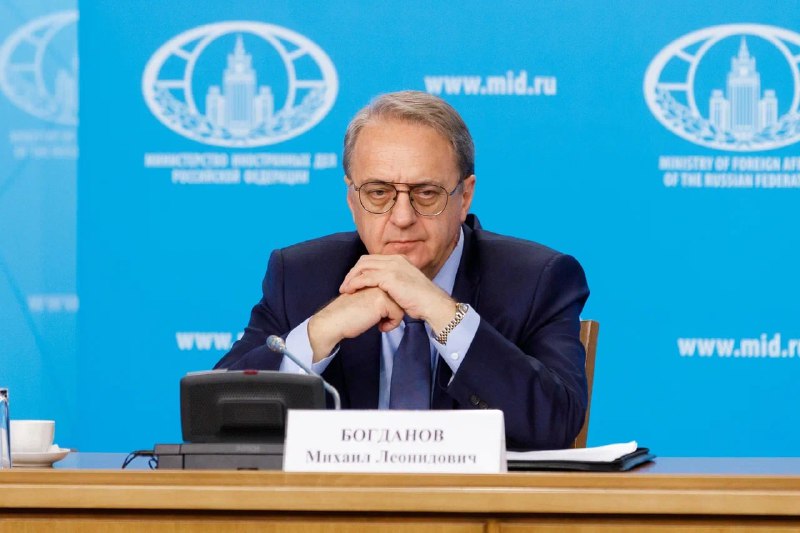
Minds at work: IKS innovators Oduetse Mphahudi (white shirt and Prince Gaogopolwe of HEVEFRU fame
“Whereas conventional medicine is focused in the use of only
the active ingredient of a plant, herbal remedies use the whole plant.”
by Oduetse Mphahudi
The Genesis of Conventional Medicine

Many conventional drugs originate from plant sources: a century ago, most of the few effective drugs were plant based. Examples include aspirin (from willow bark), digoxin (from foxglove), quinine (from cinchona bark), and morphine (from the opium poppy).
The development of drugs from plants continues, with drug companies engaged in large scale pharmacological screening of herbs.
Major differences between Conventional Medicine and Herbal Medicine
Herbal medicine is the use of plants and plant extracts to treat disease. Many modern drugs were originally extracted from plant sources, even if they’re now made synthetically.
Whereas conventional medicine now tries to use only the active ingredient of a plant, herbal remedies use the whole plant. Herbalists argue that the mixture of chemicals in the whole plant work together to give a better effect (through synergy and buffering) than a single active ingredient.
The Pivot of Supremacy of Herbal Medicine
Whereas conventional medicine offers optimal symptoms based treatment, with high concentration of active ingredients, and with high risk of side effects, Herbal medicine offers optimal body immune boosting with low concentration of active ingredients and low risk of side effects.
Whereas conventional medicine offers body immune boosting through vaccines, which often have side effects, (case of COVID 19 vaccines), herbal medicine provide body immune boosting through naturally occurring bioactive compounds, with very low side effects.
In the cause of prevention, through vaccination, conventional medicine, prepares the body through antibodies to fight limited diseases. In the cause of treatment conventional medicine kills limited pathogens. For example, bacteria (antigen) is killed by antibiotics. When the virulence of the pathogen is reduced the body is enabled to fight back.
In the cause of prevention, through taking medicine by ingestion (through mouth) and inhalation (through steaming), herbal medicine, prepares the body through antibodies to fight wider range of chronic and communicable diseases.
In the cause of treatment herbal medicine kills a wide range of pathogens. This broad approach in the treatment and prevention by herbal medicine is made possible by a wide range of active ingredients, some of which are not yet known.
Herb combining
Often, several different herbs are used together. Herbal medicine practitioners believe that the principles of synergy and buffering apply to combinations of plants and claim that combining herbs improves efficacy and reduces adverse effects.
This contrasts with conventional practice, where polypharmacy (the use of multiple medications) is generally avoided whenever possible. Polypharmacy has very high risk of side effects.
Use of whole plants
Herbalists generally use unpurified plant extracts containing several different constituents. They claim that these can work together synergistically so that the effect of the whole herb is greater than the summed effects of its components.
They also claim that toxicity is reduced when whole herbs are used instead of isolated active ingredients (“buffering”). Although two samples of a particular herbal drug may contain constituent compounds in different proportions, practitioners claim that this does not generally cause clinical problems.
There is some experimental evidence for synergy and buffering in certain whole plant preparations, but how far this is generalisable to all herbal products is not known. Practitioners of herbal medicine believe that an active ingredient can lose its impact or become less safe if used in isolation from the rest of the plant.
For instance, salicylic acid is found in the plant meadowsweet and is used to make aspirin. Aspirin can cause the lining of the stomach to bleed, but meadowsweet naturally contains other compounds that prevent irritation from salicylic acid.
According to herbal medicine practitioners, the effect of the whole plant is greater than its parts. Critics argue that the nature of herbal medicine makes it difficult to give a measured dose of an active ingredient. Herbal medicine aims to return the body to a state of natural balance so that it can heal itself.
Diagnosis
Herbal practitioners use different diagnostic principles from conventional practitioners. For example, when treating arthritis, they might observe “under-functioning” of a patient’s systems of elimination and decide that the arthritis results from an accumulation of metabolic waste products.
A diuretic, choleretic (solids and bile secretion) and or laxative combination of herbs might then be prescribed alongside herbs with anti-inflammatory properties.
The general use and efficacy of herbal medicine
The aim of herbal treatment is usually to produce persisting improvements in wellbeing. Practitioners often talk in terms of trying to treat the “underlying cause” of disease and may prescribe herbs aimed at correcting patterns of dysfunction rather than targeting the presenting symptoms. That said, many practitioners prescribe symptomatically as well, such as giving a remedy to aid sleep in a patient with chronic pain.
Herbal medicine emphasises the effects of herbs on individual body systems. For example, herbs may be used for their supposed anti-inflammatory, haemostatic, expectorant, antispasmodic, or immune stimulatory properties. Although herbal preparations are widely used as self-medication for acute conditions, practitioners of herbal medicine tend to concentrate on treating chronic conditions.
A typical caseload might include asthma, eczema, premenstrual syndrome, rheumatoid arthritis, migraine, menopausal symptoms, chronic fatigue, and irritable bowel syndrome.
Herbalists do not tend to treat acute mental or musculoskeletal disorders. Herbal medicines usually tend to have several broad complementary or synergistic actions on physiological systems at the same time which are usually in the same general therapeutic direction, and often non-specific. Furthermore, these actions rarely have adverse effects.
Classification of Mphahudi’s Home Remedies
Mphahudi’s Home Remedies can be classified as Alternative –Complementary Medicine. This is so because they can either be used away from or together with western medicine.
Proposed Classification of Conventional Medicine
On point of supremacy of herbal medicine, conventional medicine can be re-classified as complementary medicine. This means, notwithstanding the supremacy of herbal medicine, herbal medicine will not provide complete therapy without the contribution of conventional medicine. For example, even in the alternative complementary medicine functions of herbal medicine, anaesthetics and chemotherapies for advanced cancers will still come from conventional medicine.
Commonly Asked Questions
What is the meaning of pharmaceutical medicine?
Pharmaceutical medicine is the medical specialty concerned with the research, development and monitoring of new medicines. Pharmaceutical physicians are involved at every stage of the drug development pipeline – using their expertise to advance pioneering medicines and ensure they are effective for patients.
What are the advantages of herbal medicines over pharmaceutical medicines?
In contrast, herbal medicines are generally gentler on the body. When taken at the recommended doses, natural treatments result in fewer side effects. By using a natural drug instead of a pharmaceutical one, you may be able to reduce your reliance on synthetic medications and avoid their possible side effects.
Which is better – herbal medicine or modern medicine?
Traditional Medicine is considered less effective than its counterpart. On the other hand, Modern Medicine is considered more effective since the approach and method they use are more specific in diagnosing diseases and how to treat them.
How can herbal medicine be helpful to us?
The major use of herbal medicines is for health promotion and therapy for chronic, as opposed to life-threatening conditions. However, usage of traditional remedies increases when conventional medicine is ineffective in the treatment of disease, such as in advanced cancer and in the face of new infectious diseases.
What are the advantages of using natural remedies?
The biggest advantage of natural healing techniques is that of low side effects. Chemical medications bring along issues such as dependency, risk of complications and side effects. Other benefits of natural home remedies include that they are cheaper, safer and in many a cases they work better.
What is the difference between traditional and modern medicine?
Traditional practitioners have historically shared their knowledge and experience freely — defining ‘open-access’ before the term even existed. Modern medicine, on the other hand, has stringent intellectual property laws and a highly evolved patenting system used to protect knowledge about drugs or medical techniques.
Why is modern medicine sometimes considered better than traditional medicine?
Modern Medicine was built around the model of running tests on sick patients to determine which drug or medical procedure would best deal with some illness. This makes Modern Medicine more precise in determining the diagnosis and how to treat this specific disease.
Difference between herbal medicine and alternative medicine
Both terms refer to treatments, like herbs or acupuncture that are out of the medical mainstream. But complementary medicine is when these therapies are used along with Western medicine. Alternative medicine is when these approaches are used instead of standard medicine.
What is the meaning of indigenous medicine?
Traditional medicine (also known as indigenous medicine or folk medicine) comprises medical aspects of traditional knowledge that developed over generations within the folk beliefs of various societies, including indigenous peoples, before the era of modern medicine.
What is a remedy?
Something that cures or relieves a disease or bodily disorder; a healing medicine, application, or treatment. something that corrects or removes an evil of any kind.
What is difference between drug and medicine?
Drugs take away control of your body & mind from YOU. Medicines reverse this and restore the control back to YOU.
How can herbal medicine be helpful to us?
The major use of herbal medicines is for health promotion and therapy for chronic, as opposed to life-threatening conditions. However, usage of traditional remedies increases when conventional medicine is ineffective in the treatment of disease, such as in advanced cancer and in the face of new infectious diseases.
Why do people prefer herbal medicine?
Dissatisfaction with conventional treatment, past good experiences, positive aspects associated with herbal medicine, as well as family traditions are the most commonly-mentioned reasons why herbal medicine is the preferred treatment.
What is a conventional medicine?
A system in which medical doctors and other healthcare professionals (such as nurses, pharmacists, and therapists) treat symptoms and diseases using drugs, radiation, or surgery. Also called allopathic medicine, biomedicine, mainstream medicine, orthodox medicine, and Western medicine.
Is herbal medicine safe all the time?
Herbal medicines are those with active ingredients made from plant parts, such as leaves, roots or flowers. But being “natural” doesn’t necessarily mean they’re safe for you to take. Just like conventional medicines, herbal medicines will have an effect on the body, and can be potentially harmful if not used correctly.
What is the difference between therapy and medicine?
One factor that is important to consider when you’re comparing therapy and medication is timing. In general, medications take effect faster and have stronger effects in the early stages of treatment, while therapy takes longer to have an effect but yields lasting effects that grow stronger over time.
Can herbal products interact with medications?
Herbal supplements can strongly affect the body. Some don’t work well with prescription medicines. This is called a medicine interaction. Herbal supplements can interact with medicines used to treat heart and blood vessel problems, such as high blood pressure and heart failure.
For example, St John’s wort – a herbal remedy used to treat mild depression – is known to have side effects when taken alongside fluoxetine (Prozac).
Herbal medications and supplements may interact in harmful ways with over-the-counter or prescription medicines you are taking. Taking herbal supplements may increase or decrease the effectiveness of other drugs you are taking or may increase the risk of negative side effects.
Can you take herbs while on chemo?
Echinacea, curcumin, St. John’s wort, valerian root, and allium (an extract of garlic) — all are examples of herbal supplements that can disrupt the toxicity-efficacy balance of chemotherapy.
Arum palaestinum, which is traditionally used for cancer treatment in several countries of the Middle East, was among medicinal plants of the Egyptian flora that showed superior in vitro cytotoxic activity. It inhibited the growth of Ehrlich ascites carcinoma cells (EACC) by 97.29% (Aboul-Enein et al., 2012).
So generally, herbs are recommended for the prevention and treatment of all types of cancer in their early stages of development.
© Oduetse Mphahudi








